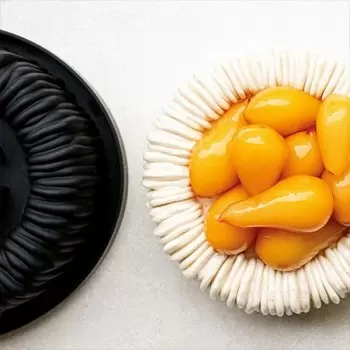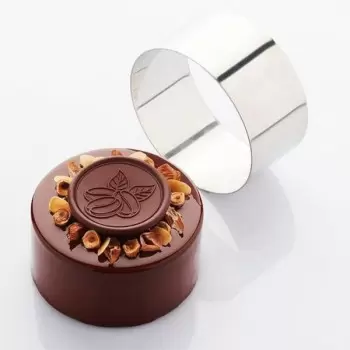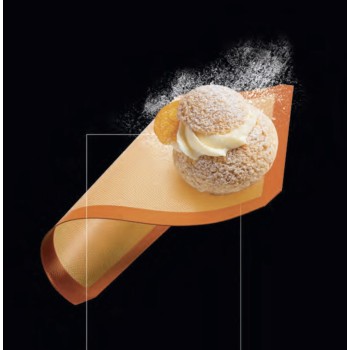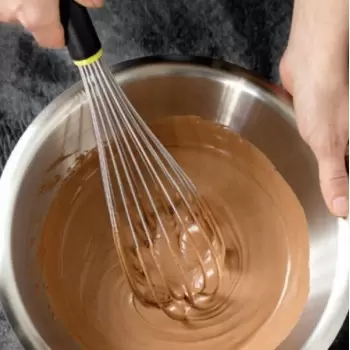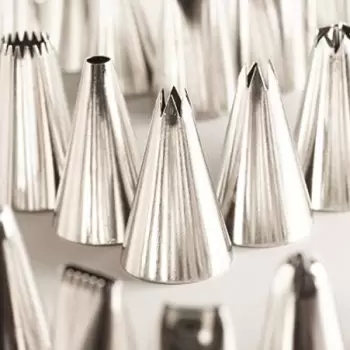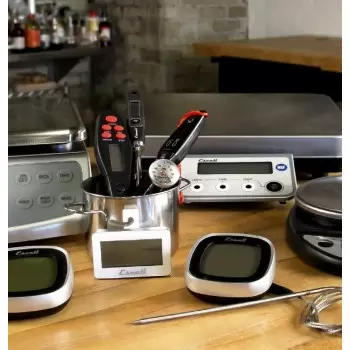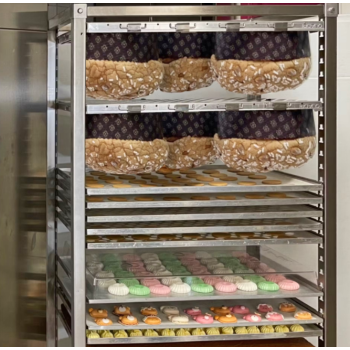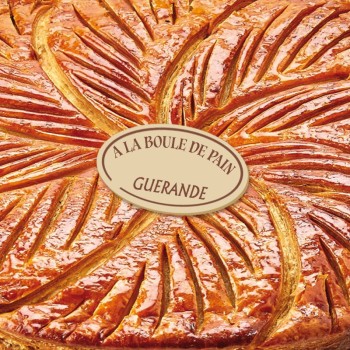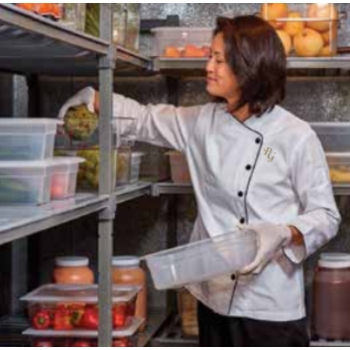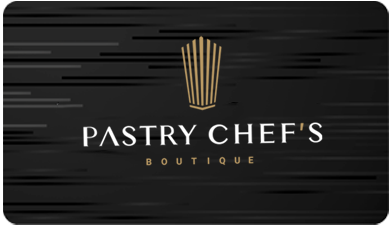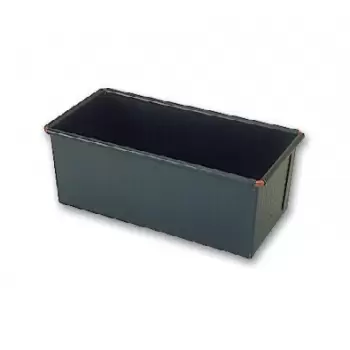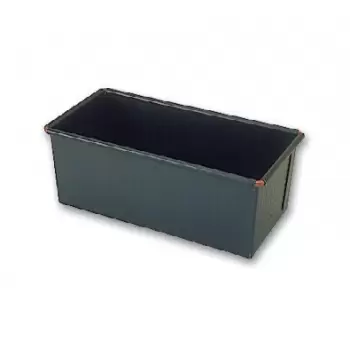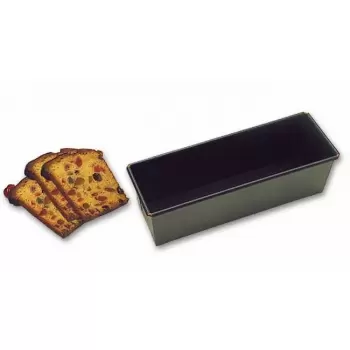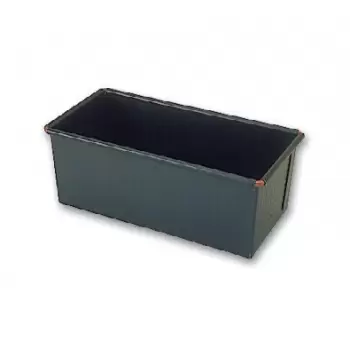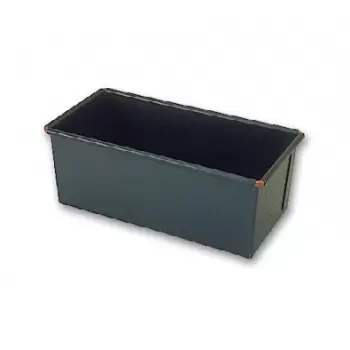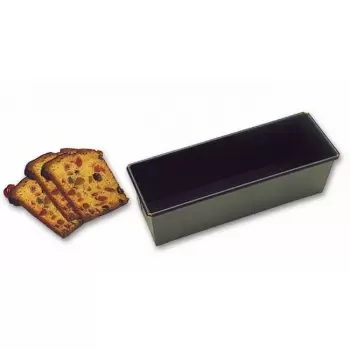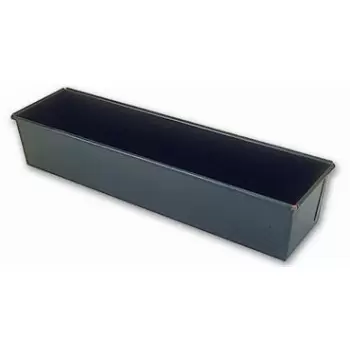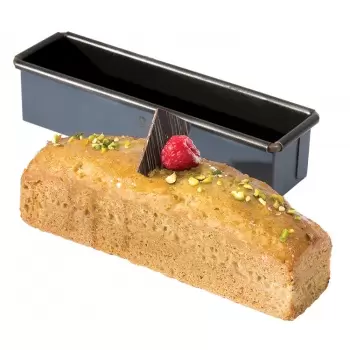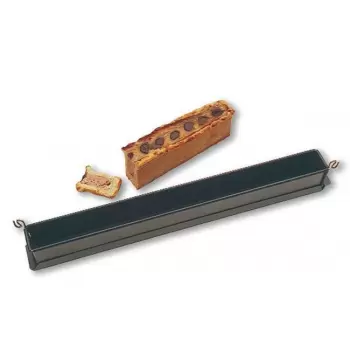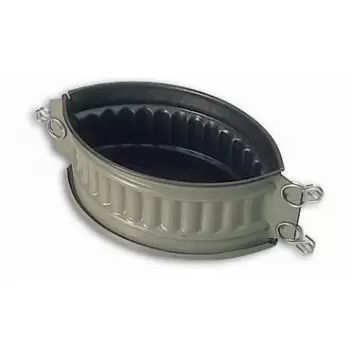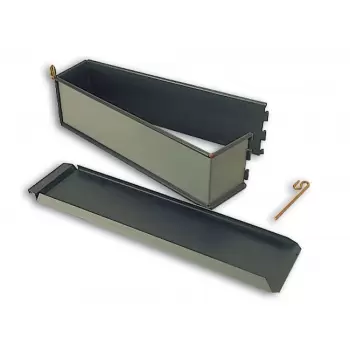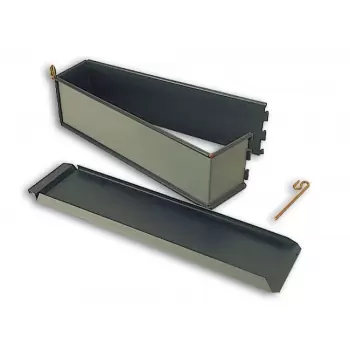
 PASTRY Universe
PASTRY UniverseOur pastry collection has an extensive line of world-class professional products from pastry and ice cream molds, disposable and metal bakeware, pastry tools, rings, and cutting equipment to cake decorating tools, spray and glazing equipment, baking liners and mats, and much more.
Essential bakeware insights for culinary professionals: Cake & Bread Loaf Pans
In the demanding environment of professional kitchens, the selection of bakeware is pivotal to the success of your culinary creations. Bread loaf pans & cake pans, in particular, are indispensable tools for chefs striving for excellence in texture, form, and crust in their baked goods. Amidst the wide array of available brands, De Buyer, Martellato, Matfer Bourgeat, Paderno, and Silikomart distinguish themselves through unparalleled quality and efficacy.
Matfer Bourgeat Exopan Steel Non-Stick Whole Wheat Bread Cake Mold - 6x 3x 3
Matfer Bourgeat Exopan Steel Non-Stick Whole Wheat Bread Cake Mold - 8x 3x 3
Matfer Bourgeat Exopan Steel Non-Stick Whole Wheat Bread Cake Mold - 10x 3 1/2x 3
Matfer Bourgeat Exopan® Steel Non-Stick Mini Loaf Mold 7 1/8" x 1 3/4" x 1 3/4"
Matfer Bourgeat Exopan Mini Pate Mold 19 3/4x 1 9/16x 2 3/8
Matfer Bourgeat Exopan Non Stick Oval Pate Mold 8 1/4x 5 1/2x 3 1/2
Matfer Bourgeat Exopan Plain Meat Pie Mold 19 3/4''x3 3/8''x 3 1/2''
The competitive edge: professional-grade bread loaf pans (or cake pans) in culinary operations
The decision-making process behind choosing the right loaf pan for a professional kitchen encompasses a variety of critical considerations, each impacting the pan's performance and the overall quality of the baked product.
Culinary masters know all too well that the secret to exceptional baked goods lies in the selection of the right cake pan. Incorporating professional-grade bakeware isn’t just a matter of functionality - it’s a strategic choice that elevates the boutique's reputation, enhances customer satisfaction, and drives the success of the busines:
1. Bread loaf pans uniform heat distribution :
Select Metal cake pans from esteemed manufacturers like De Buyer and Matfer Bourgeat or Martellato are engineered for optimal heat distribution, promoting consistent baking and flawless crust formation across every product.
2. Bread loaf pans resilience and sustainability:
High-end brands such as Paderno and Silikomart produce bakeware using materials capable of enduring high temperatures and frequent use. This resilience translates into a long-term return on investment, reinforcing the operational efficiency of any professional kitchen.
3. Bread loaf pans adaptability and diversity:
The extensive assortment of sizes, shapes, and materials available in professional bakeware accommodates a wide spectrum of baking requirements, enabling chefs to perfect an array of dishes from delicate chiffon cakes to robust, flavorful loaves.
4. Bread loaf pans superior presentation:
In the culinary industry, the visual appeal of dishes is as crucial as their taste. Utilizing premium paper pans can elevate the presentation of baked goods, enhancing customer satisfaction and contributing to a memorable dining experience.
Embracing these high-quality cake pans not only optimizes baking processes but also reinforces a culinary establishment's reputation for excellence, setting it apart in the competitive hospitality landscape.
Exploring material durability and thermal properties of various loaf pans
Choosing the right loaf pan can significantly impact the outcome of your baked goods. Besides considering factors like size and shape, understanding the material durability and thermal properties of different loaf pans is crucial. In this guide, we'll delve into five common types of loaf pans: Nonstick Metal, Exoglass Mold, Silicone Mold, Aluminum, and Paper, and discuss their respective characteristics.
1. Nonstick Metal Loaf Pans:
Nonstick metal loaf pans are popular due to their durability and ease of use. Made from materials like carbon steel or aluminum, these pans offer excellent heat conduction, ensuring even baking. The nonstick coating prevents food from sticking, making cleaning a breeze. However, over time, the nonstick coating may wear off, reducing its effectiveness.
2. Exoglass loaf pans:
Exoglass molds are crafted from a composite material that combines fiberglass and high-quality resin. These pans are known for their exceptional durability and thermal stability. They can withstand high temperatures without warping or cracking, making them ideal for both baking and freezing. Additionally, Exoglass molds are nonstick, ensuring easy release of baked goods.
3. Silicone bread loaf pans:
Silicone loaf pans have gained popularity for their flexibility and nonstick properties. Made from food-grade silicone, these pans are lightweight, easy to handle, and resistant to odors and stains. Silicone molds offer excellent heat distribution, resulting in evenly baked loaves. However, they may not provide the same level of browning as metal pans. While durable, silicone pans can be susceptible to tearing or deformation if not handled carefully.
4. Aluminum loaf pans:
Aluminum loaf pans are a classic choice known for their affordability and conductivity. These pans heat up quickly and distribute heat evenly, promoting uniform baking. Aluminum is also resistant to corrosion, ensuring longevity. However, aluminum pans may react with acidic ingredients, altering the taste of baked goods. Additionally, they may dent or scratch easily if mishandled.
5. Paper loaf pans:
Paper loaf pans are convenient for baking and gifting bread or cake loaves. These disposable pans are typically made from food-grade paperboard, offering moderate durability for single-use applications. Paper molds are not suitable for high-temperature baking and can become soggy if exposed to moisture for extended periods. While cost-effective and eco-friendly, they lack the thermal stability and reusability of other materials.
For discerning culinary professionals, the choice of a suitable bread loaf pan is a critical decision that directly impacts kitchen productivity and the ultimate quality of culinary creations.
Optimal bread loaf pan dimensions for professionals: making the right choice
In professional baking, the dimension of your loaf pan isn't merely a detail - it's a fundamental aspect that dictates the success of your culinary creations. To navigate the complexities of selecting the most suitable size, culinary professionals can employ the following strategic approaches:
Calculating pan volume: A precise understanding of your pan's capacity is essential. This can be achieved by filling the pan with water and measuring the volume in a liquid measuring cup. Alternatively, calculating the volume based on the pan's dimensions (length x width x height) and converting this figure into cups or milliliters offers a more mathematical approach. This method ensures that the pan's volume aligns with the requirements of the recipe, guaranteeing optimal baking conditions.
Determining batter volume: Specifically for quick breads, direct measurement of the batter offers a straightforward gauge of the appropriate pan size. When working with yeasted breads, the goal is to fill the pan to two-thirds of its height, balancing the bread's rise with the pan's capacity to ensure even baking and optimal structure.
Leveraging pan size charts: Utilizing a pan size chart for reference enables chefs to compare various pan volumes and select one that best matches the demands of the recipe at hand. This comparative analysis is invaluable for adapting recipes to the pans available within a professional kitchen setting.
In conclusion
The choice of loaf and cake pans is crucial in determining the quality and visual appeal of baked goods within the professional culinary arena. Pastry Chef’s Boutique products accommodate a diverse array of baking requirements, including efficient heat distribution, enduring durability, ease of maintenance, and exceptional aesthetic appeal.
Each type of loaf pan offers unique advantages and limitations. Nonstick metal pans provide durability and even baking, while Exoglass molds offer exceptional heat resistance. Silicone molds are flexible and nonstick, aluminum pans offer affordability and conductivity, and paper molds provide convenience for single-use applications. By understanding these characteristics, you can choose the perfect loaf pan to achieve delicious baked results every time.
